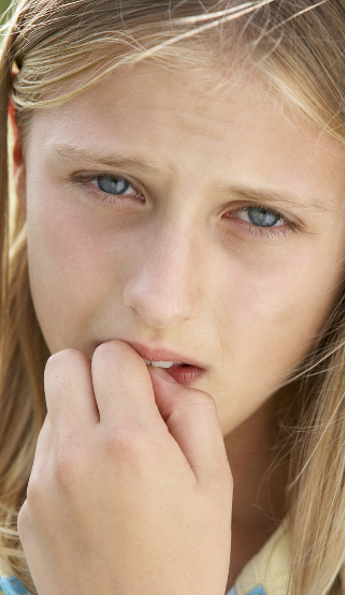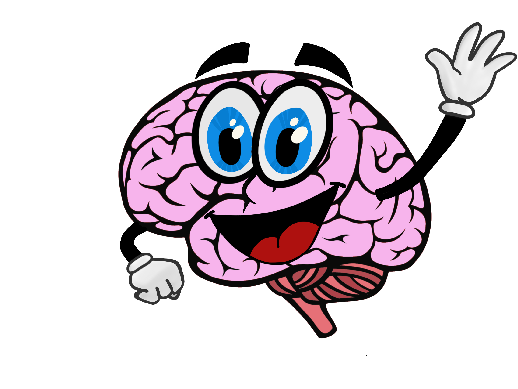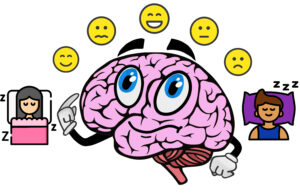The UW Department of Psychiatry and the HealthEmotions Research Institute are looking for girls ages 8 to 11, to participate in a paid research study. Children who are currently receiving treatment or are taking medications for anxiety or other emotional issues are not eligible to participate. Children who have braces are also not eligible to participate. If you think your child may fit these criteria, please complete our online screening by clicking on the “Let’s Get Started!” link below. The screening has sections for both you and your child to complete, and will need to be completed in the same session. Your child will earn a $10 gift card to Amazon, Target, or Walmart for completing this survey. This gift card will be sent by mail after you complete the survey – GIFT CARDS WILL NOT BE DELIVERED ELECTRONICALLY. Please note if you and your child have previously completed this research study screening your child is NOT eligible for additional compensation and will not receive a gift card by mail. If you believe your child’s status for study inclusion may have changed from a previous round of screening please contact us at (608) 263-2338. Children who qualify for the full study may receive up to $800 over multiple study sessions that include a clinical interview, questionnaires, mood ratings, a learning study, biological samples, an MRI brain scan, and the collection of sleep data using electrodes on the scalp both at home and in our sleep laboratory.

This is an accordion element with a series of buttons that open and close related content panels.
More about this Research
This study is led by Dr. Ned Kalin, Hedberg Professor and Chair of Psychiatry at the University of Wisconsin Department of Psychiatry. The study will use a MRI brain scan to collect information about brain structure and function in children with a range of worries and anxiety. We will also collect information about brain activity during sleep both at home and in the laboratory using electrodes place on the scalp. In addition to the MRI, participation in this study will include a clinical assessment, and learning study, saliva samples, and will require both parents and children to answer questionnaires about the child’s mood and health. With this and previous studies, researchers hope to better understand how to detect early risk for the development of anxiety, and how it relates to sleep. This area of research is particularly important because significant anxiety earlier in life may be a risk factor for adult anxiety.
More about Anxiety in Children
Emotions can be hard to figure out. Sometimes you might feel happy and other times sad or angry. Maybe you feel shy or nervous. Those are emotions too and they are totally normal. Sometimes being nervous or shy can cause you to feel like your heart is beating really fast, or your hands might get sweaty. Maybe it makes you feel sick to your stomach or grumpy. These feelings can even get in the way of your sleep. What triggers these feelings? For some people it can be taking a test or meeting new people, going new places, or reading out loud in class.
“It’s normal for kids to be nervous every once in awhile, but when it interferes with their daily life, with school, friends, and family, then you should consider it a problem,” says Dr. Ned Kalin. Dr. Kalin adds, “if your child worries more and is more shy than other children his or her age, then it is possible that he or she may suffer from anxiety.” Anxiety disorders affect one in eight children. Research shows that untreated children with anxiety disorders are at higher risk to perform poorly in school, miss out on important social experiences, and engage in substance abuse. In addition to the psychological suffering and disability associated with childhood anxiety disorders, children with anxiety have an increased risk to develop more complex anxiety disorders, depression, and substance abuse as adults. Treatment for anxiety in children can include medication but typically the first line of treatment is Cognitive Behavioral Therapy (CBT). CBT is a well-established, highly effective, and lasting form of treatment. It focuses on identifying, understanding, and changing thinking and behavior patterns. Benefits are usually seen in 12 to 16 weeks, depending on the individual. Please note that our current research studies do not involve treatment with medication or with CBT.
If you think you and your child may be interested in participating in this research study, please complete our online screening by clicking on the “Let’s Get Started!” link below.
PLEASE NOTE THAT ALL GIFT CARDS ARE SENT BY MAIL, NO ELECTRONIC DELIVERY.
Let’s get started!
If you have additional questions, please email our study team at beststudy@psychiatry.wisc.edu -or- call us at (608) 263-2338. If we do not answer, please leave a voicemail with your name, contact information, and the best time to reach you, and a member of our staff will get back to you as soon as possible.

